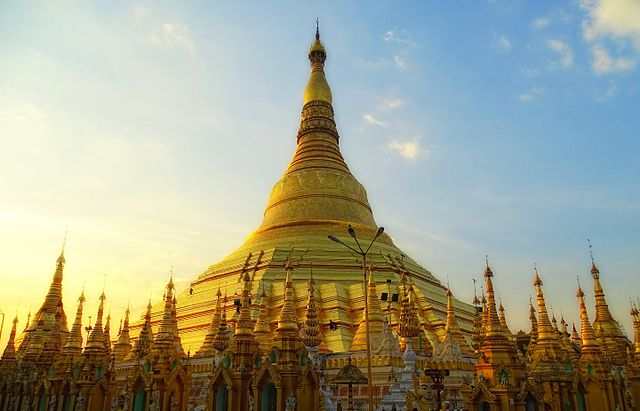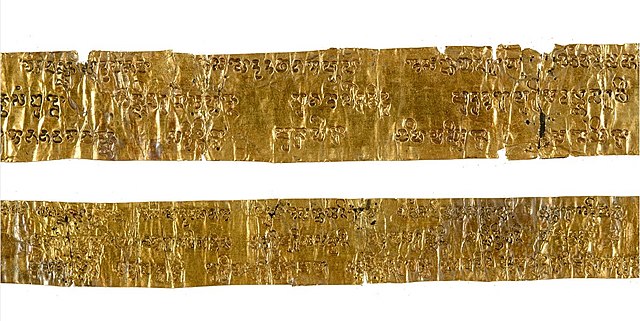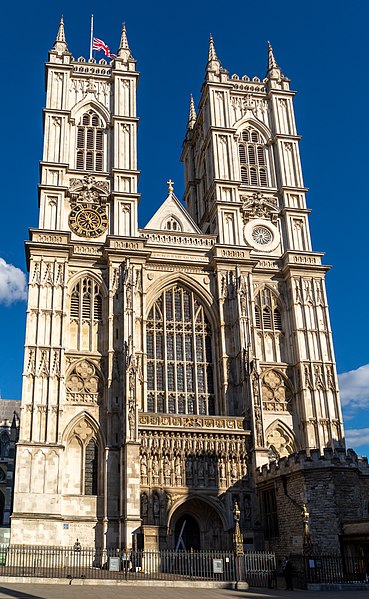Buddhism, specifically Theravāda Buddhism, is the official and state religion of Myanmar since 1961, and practiced by nearly 90% of the population. It is the most religious Buddhist country in terms of the proportion of monks in the population and proportion of income spent on religion. Adherents are most likely found among the dominant Bamar people, Shan, Rakhine, Mon, Karen, and Chinese who are well integrated into Burmese society. Monks, collectively known as the sangha (community), are venerated members of Burmese society. Among many ethnic groups in Myanmar, including the Bamar and Shan, Theravada Buddhism is practiced in conjunction with the worship of nats, which are spirits who can intercede in worldly affairs.
The famous Shwedagon Pagoda in Yangon, Myanmar
Temples in the ancient city of Bagan
Gold plates containing fragments of the Pali Tipitaka (5th century) found in Maunggan (a village near the city of Sriksetra)
A Dharma wheel from the Mon Dvaravati state
A state religion is a religion or creed officially endorsed by a sovereign state. A state with an official religion, while not a secular state, is not necessarily a theocracy. State religions are official or government-sanctioned establishments of a religion, but the state does not need to be under the control of the clergy, nor is the state-sanctioned religion necessarily under the control of the state.
Westminster Abbey is responsible directly to the British monarch. The Church of England is the established church in England.





